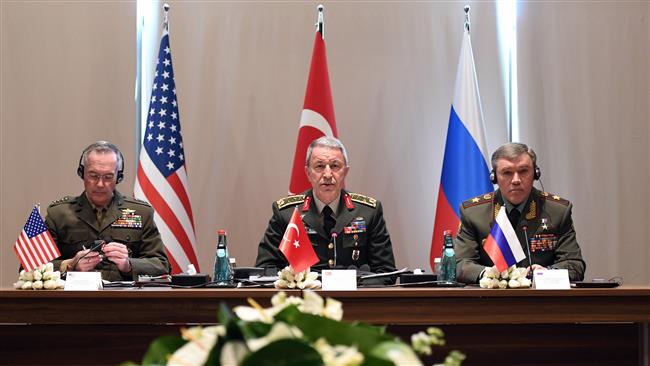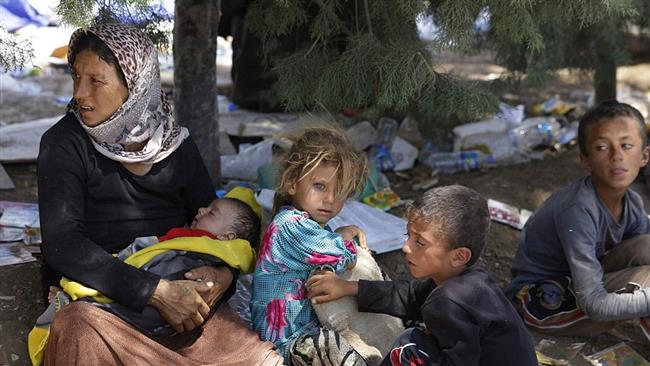Iraq to continue operations against Daesh positions in Syria: Abadi
Iraqi Prime Minister Haider al-Abadi says government forces will press ahead with an aerial bombardment campaign against the hideouts of Takfiri Daesh terrorists in Syria and neighboring states if they give Baghdad the approval for such operations.
“I respect the sovereignty of states, and I have secured the approval of Syria to strike positions (on its territory),” he told a conference in the Kurdish city of Sulaimaniya, which lies in Iraq’s northern and semi-autonomous Kurdistan region, on Wednesday.
Abadi announced in a statement on February 24 that Iraqi fighter jets had pounded Daesh lairs in Syria.
“We are determined to chase terrorism that tries to kill our sons and citizens wherever it is found, so we gave orders to the air force command to strike Daesh positions in Hosaiba and Albu Kamal inside Syrian territory,” the statement read.
The Iraqi prime minister added that the targets were connected with a recent string of deadly explosions in Baghdad.
“The heroes of the sky executed the operation and responded to the terrorists with amazing success,” Abadi said.

Iraq’s Joint Operations Command later stated that the F16 fighter jets had destroyed Daesh positions and strongholds in Hosaiba and Albu Kamal districts inside Syrian territory.
An unnamed source close to the Syrian Foreign Ministry also said the airstrikes were conducted in “complete coordination” with the Damascus government.
Abadi’s remarks come as Iraq’s battle to liberate the northern city of Mosul, Daesh’s last urban stronghold in the country, has entered a sensitive phase.
Iraqi government forces and allies liberated the eastern sector of the city in January following 100 days of fighting with Daesh.
Iraqi forces are now in the middle of an operation to retake the western half of the city. Since February 19, when the offensive, they have made major gains against the extremists on Mosul’s western front.
Last week, Iraqi soldiers took control of the last major road out of western Mosul, which links the city to Tal Afar, another Daesh bastion to the west, and then to neighboring Syria.
VIDEO | Iran-Syria: For Resistance
Qassam Brigades claims killing 3 Israeli troops in northern Gaza
More alive than ever: Sayyed Hassan Nasrallah's legacy grows stronger in martyrdom
Occupation of Syria’s highest peak Mount Hermon part of ‘Greater Israel’ project
Iran: Syrian people will decide their future without foreign interference
IRGC says Iran’s power exceeds borders, warns enemies to adjust themselves
Dozens detained, several wounded in Israeli raids in West Bank
‘Ethnic cleansing’: Hamas blasts Israeli attacks on Gaza hospital amid intl. silence


















 This makes it easy to access the Press TV website
This makes it easy to access the Press TV website